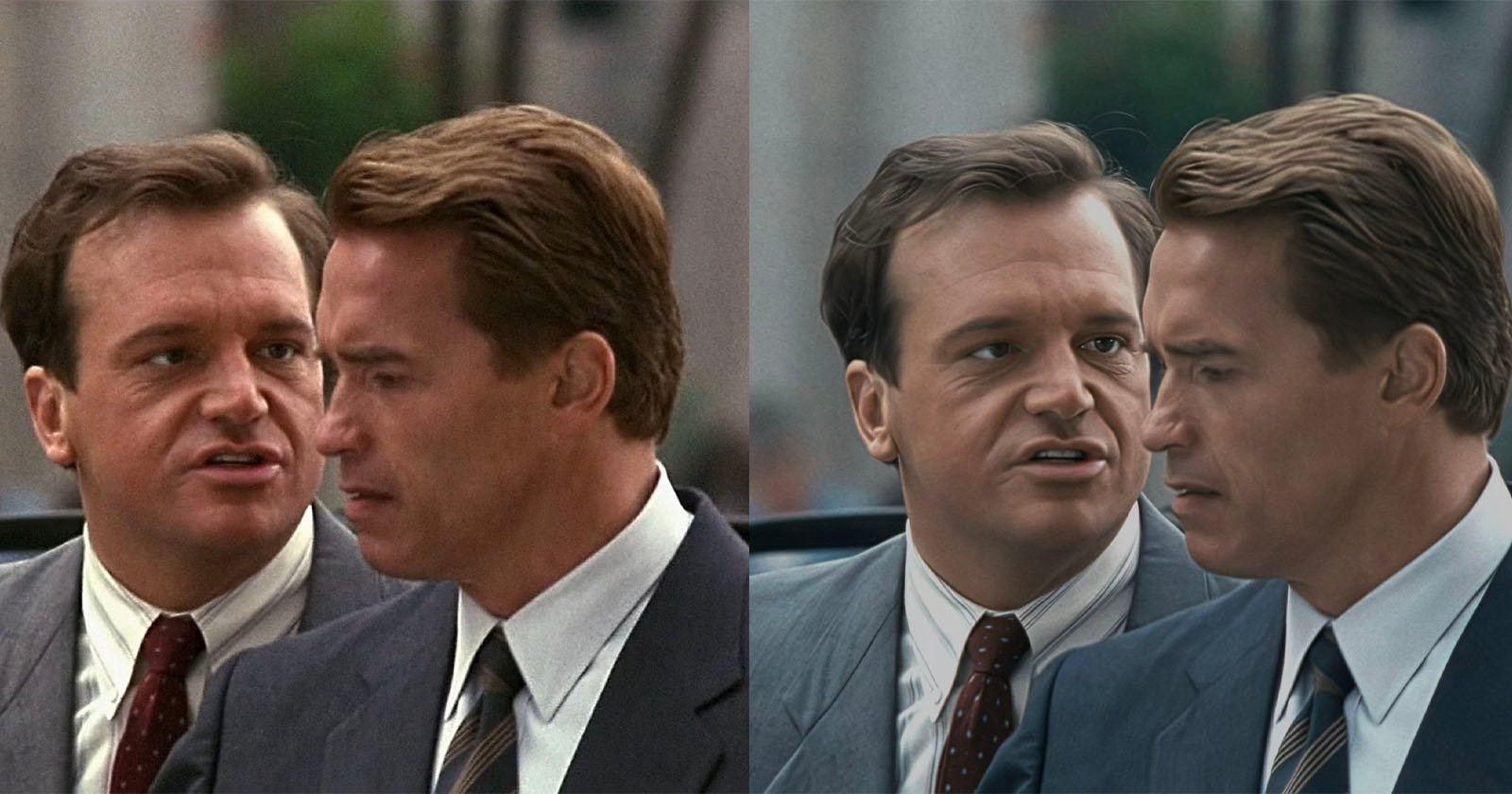
In a move that has drawn both admiration and criticism, the 1994 blockbuster *True Lies*, directed by James Cameron and starring Arnold Schwarzenegger, has been released in an Ultra HD 4K disc format, promising an unparalleled viewing experience. This release, alongside Cameron’s *The Abyss* and the sci-fi classic *Aliens*, aims to showcase these beloved films in the best possible light. According to Geoff Burdick, Senior Vice President of Lightstorm Entertainment, the films “look the best they’ve ever looked.” However, not everyone shares this enthusiasm.
Journalist Chris Person expressed concerns over the new digital restorations, telling *The New York Times*, “It just looks weird, in ways that I have difficulty describing. It’s plasticine, smooth, embossed at the edges. Skin texture doesn’t look correct. It all looks a little unreal.” This sentiment reflects the varied responses from audiences and critics alike toward the use of artificial intelligence in enhancing the visual quality of cinema.
The restoration process for these films was undertaken by Park Road Post Production, a company owned by Peter Jackson, known for its proprietary machine-learning software aimed at enhancing old footage. Park Road has previously worked on projects such as *The Beatles: Get Back* and *They Shall Not Grow Old*, which did not face significant pushback for using AI, likely due to the age and condition of the original film materials. In contrast, the use of AI on *True Lies* and other comparatively recent Cameron movies has raised questions, as the original negatives were still in relatively good shape. Disgruntled film fan Luke Ryan voiced his displeasure on X (formerly Twitter), criticizing the “digital painting OVER FILM” approach, and commented on the unnatural appearance of actors’ faces, likening them to “made out of putty.”
This controversy points to the broader skepticism surrounding AI in the film industry, especially in the realm of restoration and enhancement. AI technology, while not inherently negative, is often met with suspicion when applied to creative works, due to associations with bizarre or unauthorized content. Eric Yang, the founder of AI upscaling company Topaz Labs, highlighted the reluctance within the industry to discuss the use of AI, pointing out that “Nobody likes to say that their film was AI upscaled or that a certain release had AI applied to it.”
The backlash is not limited to *True Lies*, with recent criticisms also leveled against the horror movie *Late Night With The Devil* for its alleged use of AI-generated images. This growing controversy underscores the importance of distinguishing between AI enhancement and generative AI. Burdick from Lightstorm Entertainment clarifies that the AI used in their film restorations serves a different purpose than AI image generators, aiming to improve specific aspects of the original footage that may not have been perfect at the time of shooting.
Despite the mixed reactions, Lightstorm Entertainment believes in the potential of AI to bring subtle enhancements to classic films, allowing them to be experienced in new and improved ways by contemporary audiences. As the film industry continues to explore the possibilities of AI, the debate over its impact on cinematic artistry and authenticity is sure to intensify.
Source






